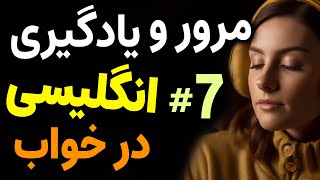نکات گرامری: زمانهای انگلیسی
نكته هاي گرامري زبان انگليسي
|
زمان حال ساده / زمان حال استمراري / ماضي نقلي / وجود قيود زماني در ماضي نقلي |
|
زمان حال ساده |
|
زمان حال ساده براي بيان عملي است که به صورت تکرار و يا عادت انجام مي شود و وجود قيود تکرار مي تواند يکي از نشانه هاي اين زمان باشد. Usually- always- generally
1- How much ……… you generally pay for a pair of shoes?
|
|
زمان حال استمراري |
|
زمان حال استمراري در بيان عملي است که هم اکنون و در حال حاضر در حال انجام است. وجود قيود زماني مي تواند نشانه اين زمان باشند. (at this moment, at present- now)
1- At present they ……… many new highways in Tehran.
|
|
وجود افعال |
|
1- Be quiet! The body ……
|
|
ماضي نقلي |
|
اين زمان براي بيان عملي است که در وقت نامشخص در گذشته آغاز شده و اثر آن تا زمان حال باقي است. 1- He is tired, because he …….. football since afternoon. جمله اي که قبل از because قرار گرفته زمان حال ساده است و جمله اي که بعد از because قرار مي گيرد بايد ماضي نقلي باشد. 2- John is unhappy because he ……….his money.
|
|
وجود قيود زماني در ماضي نقلي |
|
ماضي نقلي يک سري علائم دارد. مثل: (several times- yet- so for- up to now)
1- I ……… to him a bout it several times. |
جملات پرکاربرد انگلیسی برای خداحافظی کردن در مکالمه روزمره انگلیسی
عبارت ها و اصطلاحات، هنگام خداحافظی در انگلیسی ✋✋ در این ویدیو جملات پرکاربرد انگلیسی برای خداحافظی کردن در مکالمه روزمره انگلیسی را خدمت شما بیان کرده ایم. جملات خاص و باکلاس و مخصوص انگلی...
پرکاربردترین جملات انگلیسی با معنی فارسی که باید بلد باشید
پرکاربردترین جملات مهم انگلیسی با معنی فارسی و تلفظ که باید بلد باشید در این ویدیو مهمترین و کاربردی ترین جملات انگلیسی روزمره که برای هر زبان آموز ...
مکالمه انگلیسی در فرودگاه - جملات ضروری انگلیسی در پرواز و سفرهای هوایی با معنی فارسی و تلفظ
مکالمه انگلیسی در فرودگاه - جملات ضروری انگلیسی در پرواز و سفرهای هوایی با معنی فارسی و تلفظ در این ویدیو، ما با تمرکز بر روی مکالمات روزمره...
اسم میوه ها در انگلیسی با معنی فارسی و تلفظ
اسم انواع میوه ها در انگلیسی با معنی فارسی و تلفظ فارسی Fruits in English یادگیری اسامی میوه ها به انگلیسی جزو لغات بس...
یادگیری زبان انگلیسی با 250 فعل ضروری انگلیسی و جملات کاربردی انگلیسی مثال
یادگیری زبان انگلیسی با 250 فعل ضروری انگلیسی و جملات کاربردی انگلیسی مثال در این درس لیست 250 افعال اساسی انگلیسی توسط تیم انگلیسی مثل آب خ...
بهترین روش یادگیری زبان و بهترین روش یادگیری ماندگار لغت های انگلیسی به فارسی
بهترین روش یادگیری زبان و لغت های انگلیسی به فارسی یکی از بهترین روش های یادگیری لغت های انگلیسی همین روش است.یادگیری واژگان یکی از بخشهای حیات...
دریافت درآمد یوتوب کاملا" شفاف و قانونی، برای اولین بار در ایران
دریافت درآمد یوتوب بصورت کاملا" شفاف و قانونی، برای اولین بار در ایران با توجه به رشد تولید کنندگان محتوا و کانال های یوتوب در ایران، یک ر...
یادگیری آسان 700 کلمه بسیار پرتکرار در زبان انگلیسی با تلفظ و معنی فارسی همراه با دانلود Pdf رایگان
یادگیری آسان 700 کلمه بسیار پرتکرار در زبان انگلیسی با تلفظ و معنی فارسی همراه با لیست لغات و دانلود Pdf رایگان ...
سوالات مهم انگلیسی روزمره با جواب - (100 پرسش با جواب) سوال و جواب یا مصاحبه انگلیسی با معنی فارسی
سوالات مهم انگلیسی روزمره با جواب - (100 پرسش با جواب) سوال و جواب یا مصاحبه انگلیسی با معنی فارسی در این درس مهمترین و اسا...
مرور و یادگیری انگلیسی در خواب قسمت هفت - یادگیری جملات مهم انگلیسی قبل از خواب | درس 7
مرور و یادگیری انگلیسی در خواب قسمت هفت - یادگیری جملات مهم انگلیسی قبل از خواب | درس 7 مرور و یادگیری انگلیسی در خواب قسمت هفت - در این سری از درسهای...
مهمترین فعل های انگلیسی یا افعال اساسی انگلیسی با معنی فارسی و جملات کاربردی مثال
مهمترین فعل های انگلیسی یا افعال اساسی انگلیسی با معنی فارسی و جملات کاربردی مثال در این ویدیو یکصد مورد 100 فعل ضروری از مهمترین و اساسی ترین افعال ا...
اعضای خانواده و فامیل در انگلیسی با معنی فارسی و تلفظ
اعضای خانواده و فامیل در انگلیسی با معنی فارسی و تلفظ در این پست و در سایت انگلیسی مثل آب خوردن به صورت کامل به معرفی تمامی لغات ضروری اعضای خانواده و...
فرق بین و کاربرد job, work, career, employment در انگلیسی
فرق بین و کاربرد job, work, career, employment در انگلیسی بسیاری از ...
قربون صدقه رفتن در انگلیسی و عبارت های عشقولانه و محبت آمیز در انگلیسی 2
قربون صدقه رفتن در انگلیسی و عبارت های عشقولانه و محبت آمیز در انگلیسی 2 هر زبانی مجموعه ای از نام های مستعار شیرین یا عاش...
یادگیری انگلیسی با داستان الاغ کشاورز متن انگلیسی با ترجمه فارسی
یادگیری انگلیسی با داستان الاغ کشاورز با متن انگلیسی و ترجمه فارسی در این ویدیو داستان انگلیسی آموزنده و جالب الاغ کشاورز یا به انگلیسی The Farmer's...
صفت های پرکاربرد زبان انگلیسی برای توصیف افراد اشیا موقعیت ها وضعیت ها
صفت های پرکاربرد زبان انگلیسی برای توصیف افراد اشیا موقعیت ها وضعیت ها از صفر تا صد در این درس و در این ویدیو مهمترین و ضروری تر...
یکصد 100 فعل حیاتی و ضروری انگلیسی با معنی و تلفظ درست با مثال کاربردی
فعلهای اساسی انگلیسی به فارسی (صد 100 مورد) با مثال و ترجمه به فارسی لیست فعلهای مهم و پرتکرار که در این ویدیو یکجا جمع شده اند، به شدت د...
پرکاربردترین جملات انگلیسی با معنی فارسی که باید بلد باشید
پرکاربردترین جملات انگلیسی با معنی فارسی که باید بلد باشید در این ویدیو مهمترین و کاربردی ترین جملات انگلیسی روزمره که برای هر زبان آموز در مسیر یادگی...
سیصد 300 فعل حیاتی و مهم انگلیسی با تلفظ و معنی فارسی
سیصد 300 فعل حیاتی و مهم انگلیسی با تلفظ و معنی فارسی در سایت انگلیسی مثل آب خوردن Easy Peasy English فعلهای اساسی انگلیسی به فارسی (سیصد 300 مورد) با...
داستان انگلیسی یک لیوان شیر با متن انگلیسی و ترجمه فارسی و تلفظ صوتی
داستان انگلیسی یک لیوان شیر با متن انگلیسی و ترجمه فارسی و تلفظ صوتی ...
جملات ضروری انگلیسی با ترجمه فارسی برای جواب عذرخواهی با روش انگلیسی مثل آب خوردن
جملات ضروری انگلیسی با ترجمه فارسی برای جواب عذرخواهی با روش انگلیسی مثل آب خوردن در زندگی روزمره انگلیسی موقعیتهای بسیاری پیش میاد که باید ...
جملات و اصطلاحات کوتاه انگلیسی روزمره با معنی فارسی و تلفظ انگلیسی مثل آب خوردن
جملات کوتاه انگلیسی روزمره با معنی فارسی و تلفظ در این درس مهم، 150 مورد از جملات کوتاه انگلیسی با معنی فارسی که مهمترین جملات کوتاه انگلی...
جمله سازی انگلیسی با لغت اساسی Should در انگلیسی به فارسی و جملات ضروری روزمره مثال
جمله سازی انگلیسی با لغت اساسی Should در انگلیسی به فارسی و جملات ضروری روزمره مثال در این درس جمله سازی انگلیسی و جملات ضروری و کاربردی با لغت اساسی ...
یادگیری مکالمه انگلیسی در 20 روز با درسهای رایگان آموزش زبان انگلیسی به فارسی
یادگیری مکالمه انگلیسی در 20 روز با درسهای رایگان آموزش زبان انگلیسی به فارسی در سری درسهای آموزش مکالمه انگلیسی در 20 روز، در انگلیسی مثل آب خوردن؛ د...














































